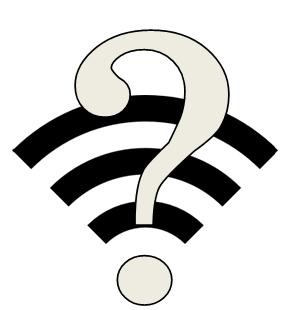By Printus LeBlanc
Two weeks ago, a slideshow discussing the importance of 5G technology from the White House and securing the network, exploded in the technology world. Most people were left scratching their head trying to figure out what 5G is, while a few technology-savvy people understood the ramifications of 5G on the economy and national security.
The slideshow followed the release of the National Security Strategy report in December, which promised, “We will improve America’s digital infrastructure by deploying a secure 5G Internet capability nationwide.”
What is 5G, why is it important, and why does it involve national security?
The Internet of Things (IoT) was a phrase coined by Kevin Ashton, co-founder and executive director of the Auto-ID Center at MIT in 1999. Ashton foresaw a world where everything was connected. His vision is coming true. Companies now sell refrigerators that can tell the owner what they are out of while they are at the store. Almost all home security systems have an application on a phone that enables the user to activate or deactivate the system from anywhere in the world with a Wi-Fi signal, and pretty soon there will be autonomous vehicles driving on the roads. All the connections require one thing, a wireless network, and that is where 5G comes in.
According to GSMA Intelligence, there are 8.4 billion mobile connections in the world, that’s right there are more mobile connections than people. The connections include everything from mobile phones to refrigerators. Out of the 8.4 billion, over 90 percent consists of 2G, 3G, and 4G technology. Obviously, the next step is 5G.
5G stands for 5th generation mobile networks. The network is supposed to be 100 times faster than the current speed champion 4G LTE. Not only is it faster, but it is also faster for more connections. It is set to offer up to 1 Gb/s for tens of connections or tens of Mb/s for tens of thousands of connections. If you’ve ever had multiple family members sharing one network in a home or tried to connect to Wi-Fi at a sporting event, you know the network can slow to a crawl. 5G is supposed to eliminate that.
It is not a question of if or when 5G happens, the only question is who will develop the technology first. There are currently a handful of companies around the world with the expertise to even attempt development. Qualcomm, Intel, Cisco, and Verizon are U.S. companies, while Nokia and Ericsson are working in Europe.
Sadly, Huawei from China is leading the pack in the development race, a troubling development. The company has a dubious history and extremely close ties to the Chinese government. According to the Economist, Huawei founder Ren Zhengfei, was part of the People’s Liberation Army (PLA) engineering corps, working in an information-technology research unit, rising to the position of deputy director.
Huawei has also been accused of intellectual property theft by several companies around the world. The Canadian firm Nortel would go bankrupt after doing business with Nortel. Brian Shields, a senior systems security advisor, commented on the IP theft from his former company stating, “It was on behalf of Huawei and ZTE and other Chinese companies that could have used this information to compete against us in the marketplace. It gave them a strategic advantage. How can you survive when you have a competitor basically right there knowing all your moves, what you’re doing, what you see as the future products?”
In 2012, the House Intelligence Committee released a report on national security threat posed by Huawei and other Chinese telecommunication companies. One of the key findings of the report states, “Inserting malicious hardware or software implants into Chinese-manufactured telecommunications components and systems headed for U.S. customers could allow Beijing to shut down or degrade critical national security systems in a time of crisis or war.” Does this sound like a company that should be providing the hardware for the Internet of Things? Would you trust your company secrets on a router from Huawei?
Americans for Limited Government President Rick Manning said, “The Constitution clearly lays out the government has an inherent role in critical infrastructure, which at the time was roads. In the 21st Century, it is extremely likely machines will talk to other machines to perform every task from self-driving cars to production on factory floors. The current reality makes it in our national interest to ensure that a government-controlled corporation from China or elsewhere does not have the ability to shut down our economic or personal activities in an act of economic terrorism.”
The U.S. cannot afford to be left out of the coming 5G revolution, nor can we trust China to steward it securely. U.S. companies and the federal government are going to have to come together to solve the problem. But the U.S. cannot allow China to provide a 5G network to the world. If that happens IP and national security will be things of the past.
Printus LeBlanc is a contributing editor at Americans for Limited Government.







